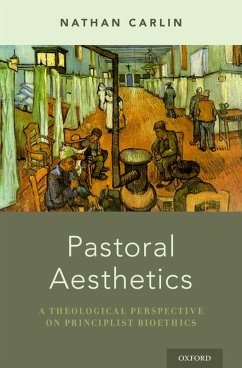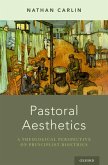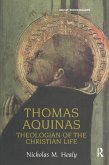It is often said that bioethics emerged from theology in the 1960s, and that since then it has grown into a secular enterprise, yielding to other disciplines and professions such as philosophy and law. During the 1970s and 1980s, a kind of secularism in biomedicine and related areas was encouraged by the need for a neutral language that could provide common ground for guiding clinical practice and research protocols. Tom Beauchamp and James Childress, in their pivotal
The Principles of Biomedical Ethics, achieved this neutrality through an approach that came to be known as "principlist bioethics." In
Pastoral Aesthetics, Nathan Carlin critically engages Beauchamp and Childress by revisiting the role of religion in bioethics and argues that pastoral theologians can enrich moral imagination in bioethics by cultivating an aesthetic sensibility that is theologically-informed, psychologically-sophisticated, therapeutically-oriented, and experientially-grounded. To achieve these ends, Carlin employs Paul Tillich's method of correlation by positioning four principles of bioethics with four images of pastoral care, drawing on a range of sources, including painting, fiction, memoir, poetry, journalism, cultural studies, clinical journals, classic cases in bioethics, and original pastoral care conversations. What emerges is a form of interdisciplinary inquiry that will be of special interest to bioethicists, theologians, and chaplains.
Dieser Download kann aus rechtlichen Gründen nur mit Rechnungsadresse in A, B, BG, CY, CZ, D, DK, EW, E, FIN, F, GR, HR, H, IRL, I, LT, L, LR, M, NL, PL, P, R, S, SLO, SK ausgeliefert werden.









